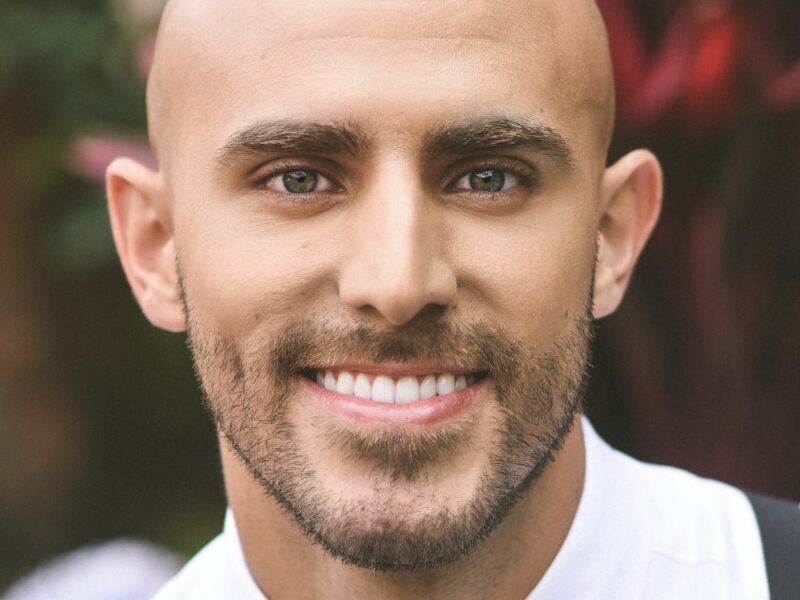
Atheists often find themselves misunderstood. For some, disbelief is assumed to mean rebellion, bitterness, or lack of meaning. In reality, atheists come from all walks of life, with different values, goals, and personalities. Yet common stereotypes continue to shape how others see them, often unfairly. Here are 15 common stereotypes about atheists.
Atheists Have No Morals

One of the most persistent stereotypes is that without religion, atheists lack a moral compass. This view assumes morality only comes from divine rules, but for many atheists, ethics are rooted in empathy, fairness, and shared humanity. They value honesty, kindness, and justice not because of fear of punishment, but because of genuine concern for others.
Atheists Are Angry at God

The “angry atheist” stereotype suggests that atheists secretly believe in God but are bitter or rebellious against Him. In reality, most atheists simply don’t see convincing evidence for a deity. Their position is often intellectual, not emotional.While some may feel frustration toward religion as an institution, that’s not the same as being angry at a god they don’t believe exists.
Atheists Can’t Be Spiritual

People often equate spirituality with religion, but atheists can experience awe and wonder too. They may find it in nature, art, music, meditation, or the feeling of deep human connection. For them, spirituality doesn’t need to be tied to the supernatural. It can simply be about experiencing life more fully. This stereotype overlooks the many ways people seek depth and meaning outside of religion.
Atheists Are Arrogant or Elitist

Atheists are sometimes painted as smug or condescending, as if they think they’re smarter than everyone else. While some outspoken atheists might fit this stereotype, most are just people living their lives without belief. Many atheists are humble, open-minded, and respectful of others’ faith. The stereotype comes from confusing confidence in reason or science with arrogance, but disbelief doesn’t automatically equal superiority.
Atheists Don’t Experience Love or Meaning

Some assume that without God, life for atheists is bleak or meaningless. But atheists often build purpose aroundrelationships, passions, creativity, and contributions to society. They fall in love, raise families, and chase dreams just like anyone else. Their joy and fulfillment are just as real, even if they don’t tie them to a divine plan.
Atheists Are All the Same

This stereotype lumps atheists into one box, as if disbelief makes everyone identical. In truth, atheists are as diverse as any group. Some are activists, others keep quiet. Some lean toward humanism, others toward skepticism. Politically, they can be conservative, liberal, or anywhere in between. To stereotype atheists as a monolith is to ignore the complexity and individuality within the group.
Atheists Hate Religious People

It’s easy to assume that criticism of religion equals hatred of believers. But many atheists separate their views on religion from their relationships with religious individuals. They may disagree strongly with certain doctrines, yet still love and respect family members, friends, and partners who believe. The stereotype of hostility oversimplifies how nuanced those relationships can be.
Atheists Only Care About Science

Yes, many atheists value science as a way of understanding the world, but this doesn’t mean they lack imagination or creativity. Atheists can be poets, musicians, storytellers, and dreamers. They don’t worship science; they simply see it as a reliable tool for truth. Their lives often balance reason with wonder, just in different ways than people of faith might expect.
Atheists Don’t Celebrate Holidays

Another myth is that atheists reject traditions altogether. In reality, many still celebrate holidays culturally because of family, community, or cultural meaning. They might strip away the supernatural element but still value the human connection and rituals that come with it.
Atheists Are Hopeless in Hard Times

There’s a stereotype that without prayer, atheists can’t cope with loss or suffering. But atheists often find strength in community, philosophy, therapy, or personal resilience. They may grieve differently — focusing on memory, legacy, or the beauty of life itself — but that doesn’t mean they lack hope. Their way of finding comfort is simply different, not absent.
Atheists Are Closed-Minded

Ironically, atheists are often accused of the very thing they’re charged with opposing. Many value curiosity, debate, and exploration of new ideas. Their disbelief isn’t necessarily stubbornness; it’s often the result of questioning, examining, and weighing evidence. In fact, many atheists pride themselves on being open to changing their minds if convincing proof ever came along.
Atheists Are Always Outspoken Activists

Because the most visible atheists tend to be public figures, people assume all atheists are vocal critics of religion. But most are not interested in constant debates or activism. Many live quietly, simply identifying as non-believers without making it central to their identity. This stereotype ignores the majority of atheists who prefer private conviction over public confrontation.
Atheists Are Immoral in Relationships

Some assume that without divine rules, atheists are more likely to cheat, lie, or betray partners. But commitment, loyalty, and honesty exist outside of religion, too. Many atheists see relationships as mutual commitments built on love and respect, not divine command. Their fidelity is rooted in human trust, not fear of judgment, and that doesn’t make it any less real.
Atheists Are Miserable Without Faith

The idea that disbelief leads to despair is common, but it’s misleading. Many atheists describe their lives as peaceful and fulfilling, finding joy in freedom of thought and personal responsibility. They don’t see themselves as missing out on happiness; they see themselves as defining it on their own terms. Far from misery, many feel empowered by living authentically.
Atheists Just Haven’t Found the “Right” Religion Yet

Another stereotype is that atheism is just a phase — a stop on the way to eventual conversion. This frames disbelief as incomplete or immature, instead of respecting it as a settled worldview. For many atheists, their lack of belief isn’t temporary; it’s the conclusion of careful thought. Suggesting they’re simply waiting for the “right” faith dismisses their conviction.

